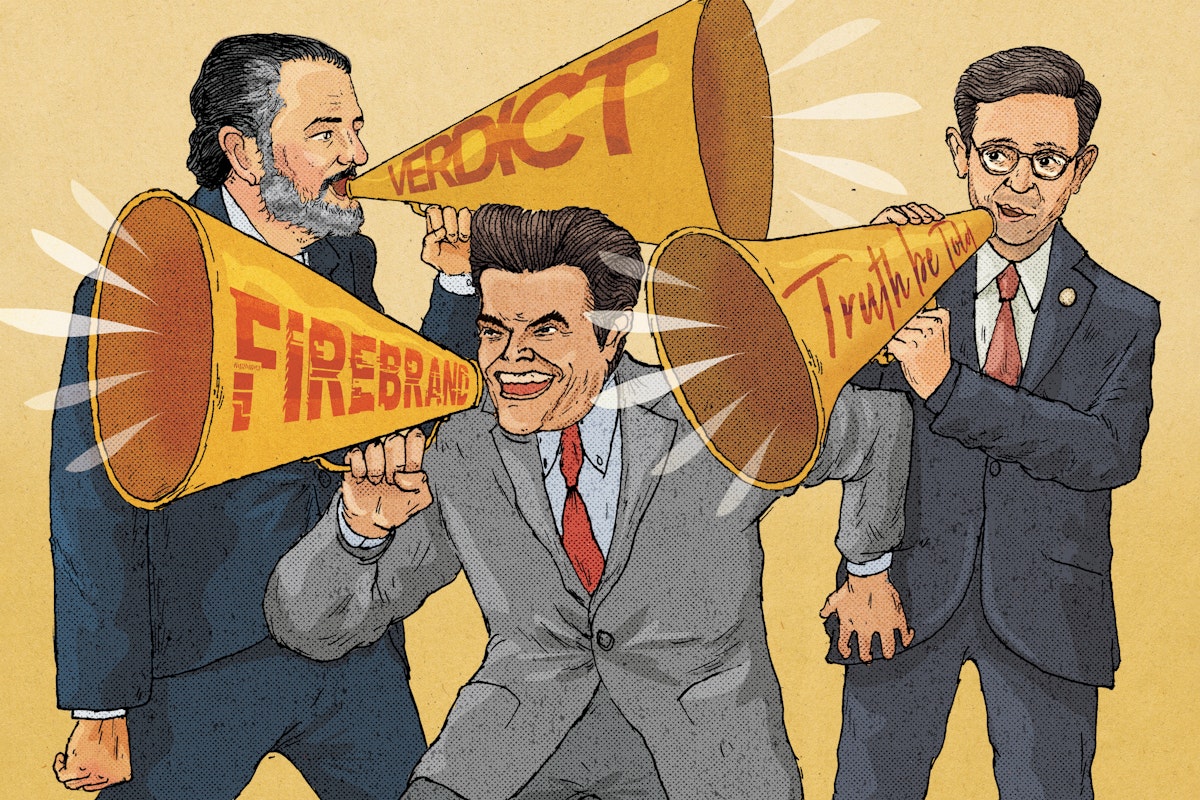
The Johnsons pulled the podcast from their (subsequently completely deleted) personal website shortly after he became speaker, but it was too late. Revelations from Truth Be Told poured out—along with many other comments about abortion and homosexuality from interviews—after he became speaker in late October, generating controversy throughout the fall. It is rare for a prominent politician to speak so openly in this way, but—then again—Johnson wasn’t a prominent politician when he recorded it. Still, Truth Be Told is notable in that it contains real candor—not the political version offered by Cruz and Gaetz. The fallout also serves as a reminder of why there isn’t more candor in political podcasting.
Still, Truth Be Told raises another question: Why would any politician have a podcast in the first place? It’s true, of course, that podcasts provide a means of addressing voters directly. For Republicans, in particular, this is appealing, and this is one reason podcasting has taken hold to the extent that it has on the right: Conservatives are skeptical of the media, and podcasting allows them to bypass the press altogether. In a post-Trump era, moreover, Republican voters have shown that they value pugilism and authenticity—or at least a version of it.
And yet these podcasts are hardly revelatory. For the most part, they’re just more chum: either half-baked takes on culture war topics or mundane “insights” into lawmakers’ work on the Hill. When you break the mold, as Johnson did, you’re punished. As Derek Robertson wrote in a piece on political podcasts for Politico, the pablum is by design. The best podcasts give listeners the illusion of a personal relationship with hosts, whom you think you know simply by listening to them be themselves. But “be themselves” is exactly what politicians aren’t allowed to do. “They are precluded from the level of candor and personality necessary to forge that bond by the demands of their office,” Robertson writes.